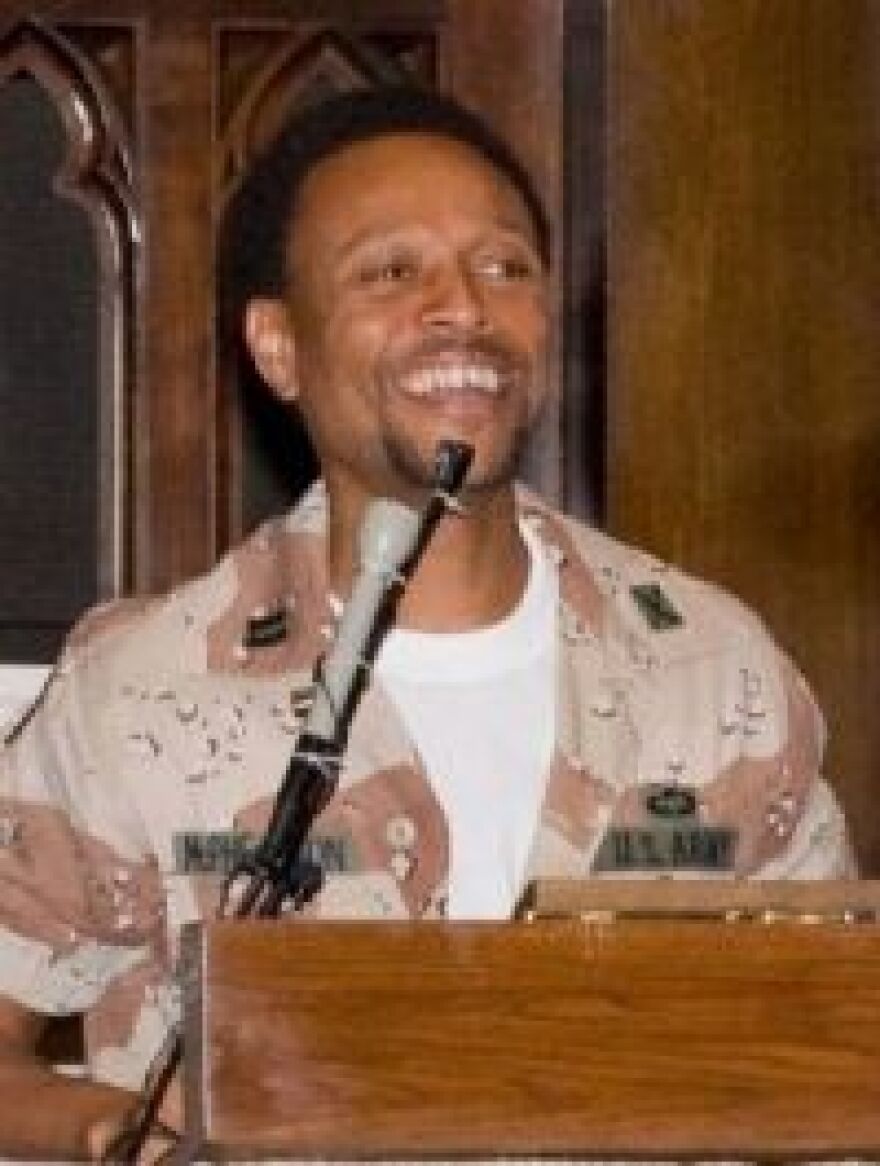Perhaps one of the most enduring images following Michael Brown's shooting death last year is the flood of people who took to the streets in Ferguson to protest. His death became a rallying cry for hundreds of people, calling for police accountability and social justice.
It felt like the beginning of movement and, at times, led many people to wonder how long the protesters could sustain their activities. A year later, that activism looks different in some ways. Protests in the streets around the St. Louis region are more rare and smaller in scale. You're more likely to see large crowds in other cities across the nation where police encounters have turned deadly.
Still the activists are out there. The leaders of the protests in Ferguson are still fighting for social justice, just in different ways. Some are focusing on community programming. Others are lobbying for legislation to guide police conduct and training.
Not everyone has continued to dedicate their time to activism. There’s protest fatigue. People have returned to their jobs, their routines, limiting their involvement.
But a core group of people remain active, and we wanted to get their thoughts on how things have changed since last August, where the movement stands, what’s been accomplished and what’s next.

Kristine Hendrix
Activist, member of the University City School Board
On what has been accomplished:
"Awareness. First and foremost, awareness. I think more people are waking up to what's really going on. Not just black and brown people, but also white people are becoming aware of what their privileges are. Black and brown people are becoming aware of the fact that we are not free yet; that we do have a way to go; that segregation is still in effect. So, I think awareness is the biggest thing that’s happened. Also, the networking. People who have been activists in different spaces for a period of time, doing whatever it was they were individually doing, are coming together and creating a larger movement. I think also that police have been put on alert because, even though they are still doing the things they did before, they know that we see them."
Michael McPhearson

Co-chair of the Don't Shoot Coalition and Director of Veterans for Peace
On where activism stands a year after Michael Brown’s death:
“Where does it stand a year later? First, for some context, nothing changes quickly. We didn't get to this situation in a year or two. It took a very long time for us to get here and while people say a lot has changed — you know from slavery through Jim Crow to today — and that’s true a lot has changed for the better. But there are a lot of things that have remained the same…
"It’s going to take many many years for us to get to where we want to be, where everyone is treated with dignity and everyone's humanity is recognized. That’s what we are looking for: Equity and equality."

DeRay Mckesson
Activist
On what’s next:
“We spent 11 months exposing and convincing. Saying, 'People, here’s the problem. Listen to us. Believe us. We know the problem is real. We need you to see it, too.' And that was what so much of the work was. It was about sort of pushing back and exposing the corruption, the killing, the murder and the lack of accountability. And we did it.
"So, almost a year later we find that there is a conversation about police accountability at the national level that had never happened before. We see people willing to question official narratives in ways we've never seen before and we’ve seen people organize in new ways in communities across the country. Not only are they confronting systems of oppression, but [they are] working to build systems that are not oppressive.”
“I think that in the next phase of the movement, of this phase of resistance, I think you’ll see people pivot to solutions a little more broadly. ... The strategies that we used to expose and convince will not be the strategies we use to solve the problem and we are sort of pivoting to the solutions phase. I think that that’s what you’ll see over the next few months. Some really focused conversations about solutions, about what a non-oppressive system looks like. We can live in a world where police don't kill people, and that’s real and how do we get there? I think you’ll see the how soon.”

Johnetta Elzie
Activist who also works for a nonprofit human rights organization
On why it’s important to continue to push for change:
“There has to be a change. I don't ever want to have to wonder if what happened to Michael Brown could happen to my little sister, or could it happen to my aunt or my uncle or my grandparents. Will I have children who are raised in a world where they cannot walk down the street with their friends because they will end up dead after? I don’t want that fear for my family anymore. I don’t want that for anyone else. I also believe it is our duty to fight for our freedom. Those are AssataShakur’s words, but they are so true. It is our duty. If I don't do it and if we don't do it, who will?"





